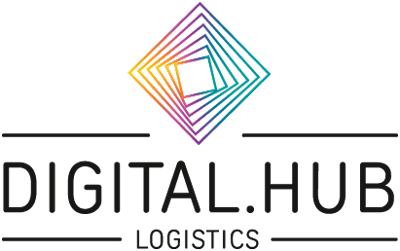
“If you’re not acting disruptive, you will be beaten”
Jay Farner, CEO of the largest US mortgage financier Quicken Loans, would certainly like to put this sentence in the logbook of every single company in the age of digitalization. Indeed, companies today should regularly look for new (digital) business opportunities, says Dr. Laura Reder, innovation coach of the Digital Hub Logistics. We talked to her about challenges, opportunities and the right steps to take in developing new business models.
Digital Hub Logistics: Do companies today really have to reinvent themselves over and over again?
Dr. Laura Reder: 80 percent of all companies expect that Industry 4.0 and related technological innovations will have an impact on their business model. In practice, however, they are hesitant: Despite the majority expectations and the high relevance for corporate success, a structured further development of business models rarely takes place in everyday business. New business models are necessary to expand – or even reinvent – the business.
However, good ideas cost time – in their development, elaboration and implementation …
But there is no alternative! Increasing digitalisation and the widespread use of innovative technologies are leading to product and service innovations. Customers expect digital services. The development and use of new products and services to master complex processes and secure competitive advantages are therefore essential. Therefore, companies must not shy away from the effort. And it is also true that market penetration times are getting shorter and shorter. The mobile phone still needed 13 years to reach a critical mass of users. With the Internet, it was already less than seven years. Therefore, companies should prepare themselves for the digitalization of their business model.
After all, digitization now brings not only challenges but also opportunities. What do you see in particular for small and medium-sized businesses?
The increasing “intelligence” of products leads to a high potential for new service business. For example, automatic data transfer, live tracking of products or autonomous charging devices enable customers to have greater information transparency and to be able to trace the origin of a product throughout. Digitalized service processes today generate more sales and profits than traditional sales.
How do companies succeed in exploiting these opportunities?
First of all, you have to realize that the customer must be at the center of every business model. Companies should therefore focus on concrete customer needs and create added value or a suitable offer for their customers.
What are other success factors?
The age of digitalization is also the age of speed and collaboration: companies should use established methods – including and especially agile methods – in a structured manner, rely on holistic, cross-organizational development and test their model quickly and flexibly. Very important: External partners and customers should always be involved in the development of business models. In this way, companies receive direct feedback and can put processes into concrete terms.
However, conditions on the market are subject to constant change. The methods and procedures for developing business models are also constantly evolving. How do companies best deal with the constant change?
By accepting them and not being afraid to break new ground. In the Digital Hub Logistics, for example, we also offer a variety of innovation modules on the latest methods and models in the context of the Start-in Factory, which companies might otherwise not come into contact with. Especially on the subject of business model development, there is an extended process model using Lean Startup. Minimum Viable Products (MVP) are used to test business model approaches. If you are open to trying this out, you will also be ahead of the market and customers.





